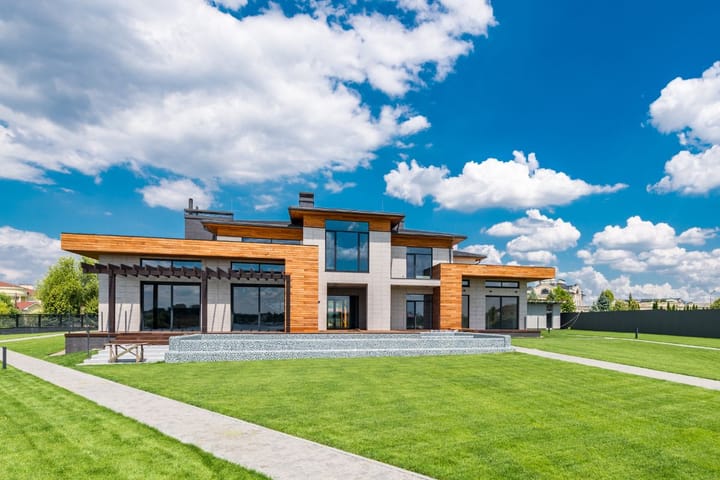How to Tailor Services to Client Preferences: A Guide for Green Industry Professionals
Personalization is key in landscaping—clients seek tailored solutions that align with their vision, boosting satisfaction, trust, and repeat business.

Nowadays, personalization is expected, not just a nice extra. Studies show that 81% of consumers prefer businesses that offer personalized experiences. In landscaping, where the services affect how a client's outdoor space looks and feels, adapting to each client's unique needs is crucial.
Clients are looking for more than just basic upkeep or standard landscaping. They want a provider who gets their vision, whether that’s building a sustainable garden, boosting curb appeal, or making upkeep easier. By focusing on personalization, your business shows it values their input and delivers services that truly meet their needs.
A personalized approach not only builds trust but also increases client satisfaction, encourages repeat business, and leads to more referrals. Let’s look at how you can integrate customization into your business practices to enhance your presence in the landscaping industry.
Leverage Technology to Provide Accurate and Custom Estimates
The quoting process often starts your interaction with a client. Getting it right sets the stage for a relationship based on trust and clear communication. For example, by using estimating software for landscapers, you can provide tailored quotes that address specific client needs with precision and clarity.
Clients value thorough estimates that clearly outline what work will be done, what materials are needed, how long it will take, and how much it will cost. Using sophisticated software helps tailor these proposals, saving time and avoiding errors that could lead to changes later.
Showing your estimates in a professional way tells clients you respect their time and care about meeting their expectations. This shows your dedication to being a reliable and thoughtful service provider.
Engage Clients in a Meaningful Discovery Process
Clients rarely express their needs in industry jargon or fully articulate their preferences. Your job involves asking the right questions and carefully listening to uncover what truly matters to them. For example, some clients might value environmentally friendly methods while others may care more about how things look or how easy they are to keep up.
Asking open-ended questions like, 'What do you value most about your outdoor area?' helps you collect valuable feedback. Follow up with more questions to make sure you really understand their objectives.
Documenting this information helps you translate their preferences into actionable plans, showing that you value their feedback. This process of active engagement creates a foundation of trust, ensuring clients feel heard and valued.
Offer Tailored Service Packages
Since every client is different, using the same approach for everyone doesn't work if you want to stand out. Customizing your service offerings helps you meet various needs and budgets without lowering your standards.
Develop options that address common client concerns, like low-maintenance solutions for those who don't have much time, or eco-friendly options for those focused on environmental impact. Make sure there’s room to tweak these options, like choosing to have lawn care but not seasonal planting, or emphasizing pest control instead of updating irrigation systems.
Tailored packages show your adaptability and willingness to meet unique demands. This approach not only enhances satisfaction but also positions you as a provider who respects individual preferences while delivering value.
Adapt Communication Styles to Fit Client Preferences
How you communicate with clients matters as much as the services you provide. Some clients appreciate frequent updates, while others prefer minimal communication. Identifying their preferences early can make your interactions smoother and more effective.
Ask clients how they’d like to receive updates—whether by email, phone, or text—and stick to their chosen method. For clients who want regular updates, provide timely progress reports or photos to keep them informed. For those who prefer minimal contact, focus on providing key updates only when necessary.
Clear and respectful communication builds trust. Clients who feel that you respect their time and preferences are more likely to remain loyal to your business. Consistency in following their preferred style reinforces your professionalism and attentiveness.
Monitor Client Satisfaction and Adjust as Needed
Great service goes beyond just doing what's expected; it means continuously checking and adjusting. By asking clients what they think, you can keep up with their changing needs. Simple tools like surveys or follow-up emails work well to gauge satisfaction. Direct conversations can also uncover valuable insights about their experience.
Take note of recurring themes in any feedback you receive. If multiple clients mention a particular issue or suggest an improvement, address it promptly. For example, if clients express frustration with response times, refine your communication processes.
Regularly revisiting your service offerings and delivery methods ensures that they remain relevant and effective. Clients notice and appreciate businesses that show a commitment to improvement. This proactive approach fosters loyalty and strengthens your reputation.
Building Lasting Relationships Through Personalization
When you adapt your services to what each client wants, your business changes from just selling to being a trusted partner in making their outdoor areas look great. Clients can tell when you really try to get what they need, and they stick with you and tell others about you because of it.
Personalizing services can be done using advanced estimating tools, having real conversations with clients, and providing flexible options. Coupled with respectful communication and a willingness to adapt based on feedback, these practices position you as a leader in the green industry.
Ultimately, personalization drives success. By focusing on client satisfaction and aligning your services with their goals, you’ll build lasting relationships that benefit both your clients and your business.



Comments ()